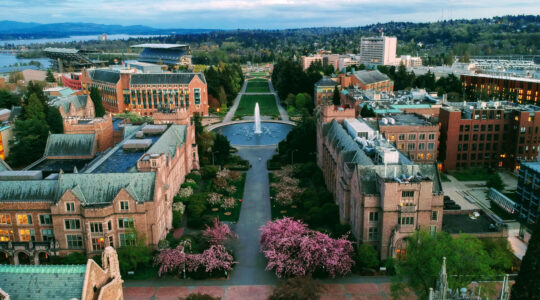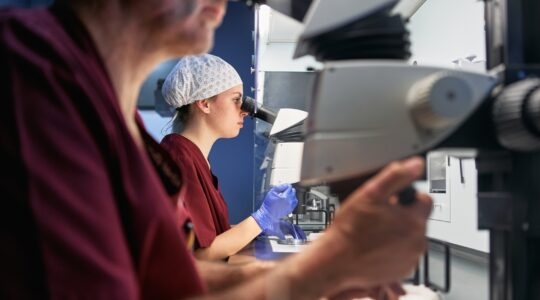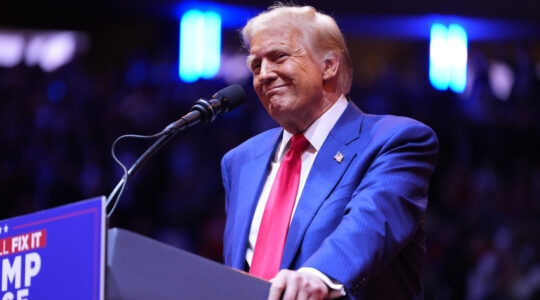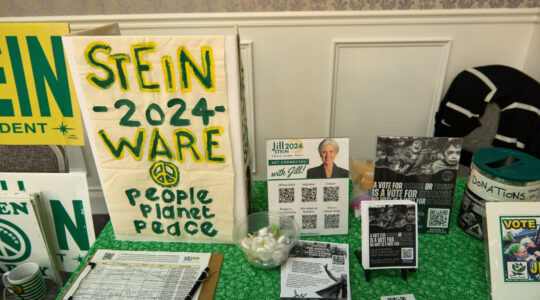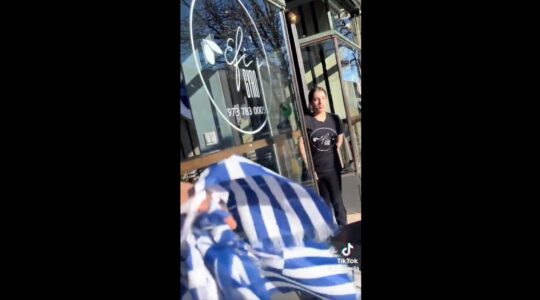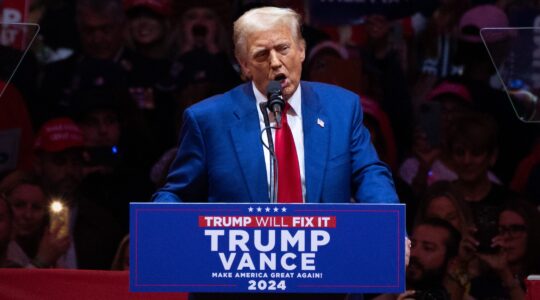It would have been Jerusalem’s first permanent ice rink.
For a while, the Jerusalem Foundation toyed with the idea of constructing an ice rink in Teddy Park, right outside the Old City’s walls.
"We considered it for a while," said Moshe Fogel, executive director of the Jerusalem Foundation. "But then we found out there would be all sorts of chemicals involved. It wouldn’t have been good for Jerusalem."
Instead, Teddy Park, which is slated to open in 2011, is set to have a "light and sound" water fountain as its center piece. Officials at the foundation said their plans for the park demonstrate their enduring commitment to come up with new and creative ways of improving the quality of life in Jerusalem.
Since it was founded in 1966, the Jerusalem Foundation has raised more than $1 billion in donations for a wide range of projects around the city, building stadiums, cultural centers and sports facilities.
Now, it hopes to boost its efforts thanks to its new chairman, Sallai Meridor, Israel’s former ambassador to the United States and a former chairman of the Jewish Agency for Israel.
In an interview with JTA at the foundation’s offices in New York, Meridor showed a keen familiarity with Jerusalem’s problems. He said he’s pained that Jerusalem is Israel’s poorest big city, alarmed by the flight of young, secular and educated Jews from the city, and deeply concerned by the growth of the city’s non-Zionist fervently Orthodox and Arab populations. Jews comprise about 65 percent of Jerusalem’s population, but almost half of those are non-Zionist Orthodox Jews/
Meridor says the Zionist camp has reason for hope, calling last year’s election of Mayor Nir Barkat, a self-made businessman and secular Jew, a window of opportunity for the city.
"This is a time where the residents of Jerusalem are trying to make a change," Meridor said. "There’s a municipality that wants to change things. The question is whether the Jewish people will rise to the challenge."
Since Barkat’s election, the Jerusalem municipality and Jerusalem Foundation have been working in tandem on a number of projects to reinvigorate the city, including a program to create student housing in the moribund city center to transform it into a vibrant cultural area that will lure young people.
"The foundation is focused on the issues that can attract a young couple to the city, such as education, entertainment and culture," Meridor said.
Meridor believes the foundation’s close ties with the municipality, its track record and accountability to donors puts it in a unique position to effect change.
"I wouldn’t have volunteered for the job or asked anyone to help in this mission if I thought otherwise," he said.
A scion of the late politician Eliyahu Meridor and brother of Minister of Intelligence and Atomic Energy Dan Meridor, Sallai Meridor says he’s not willing to give up the fight for Jerusalem.
"When my father came to Israel in the 1930s, the first thing he did was fight for Jerusalem," Meridor said. "He fought and even lost an eye, but in the end they created a Jewish state for the first time in 2,000 years."
While the Jerusalem Foundation seeks to strengthen the city’s Zionist base, Meridor said it remains committed to coexistence, exemplified by the many projects if funds that help Arab Jerusalemites.
Recently, the foundation unveiled sports facilities in the Arab neighborhoods of Wadi Joz and the Muslim Quarter of the Old City, built with American Jewish money, Meridor said. Foundation money also has gone to build the campus for the Hand in Hand primary school, a Jewish-Arab education center for children in Jerusalem.
"Our projects benefit all of Jerusalem’s residents," Meridor said. "The foundation’s operations across the city are the unequivocal fulfillment of both Zionism and Judaism."

Help ensure Jewish news remains accessible to all. Your donation to the Jewish Telegraphic Agency powers the trusted journalism that has connected Jewish communities worldwide for more than 100 years. With your help, JTA can continue to deliver vital news and insights. Donate today.
